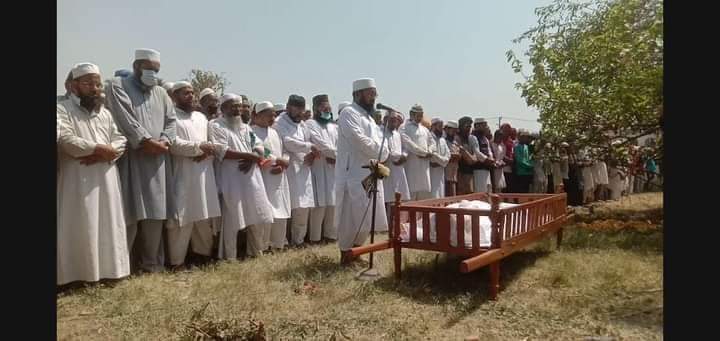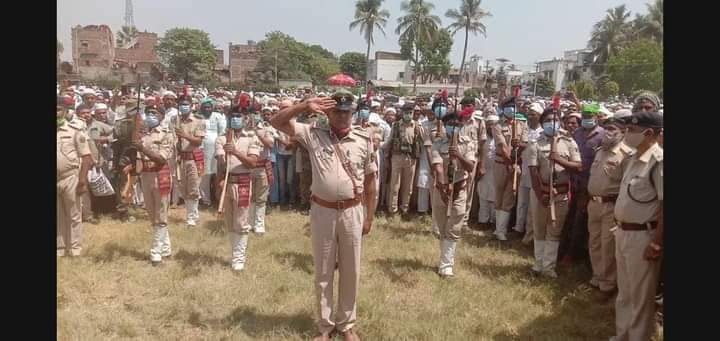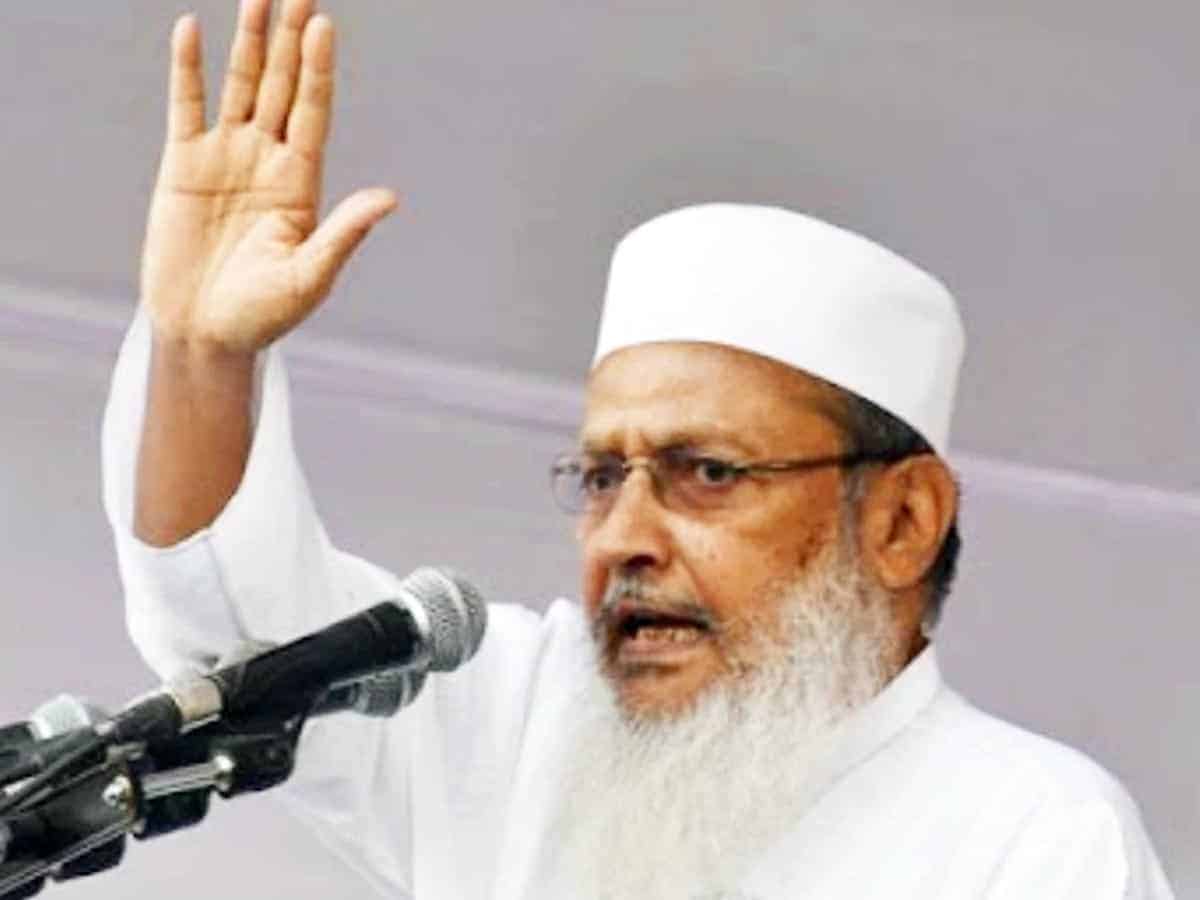
After I was uprooted from then intellectually vibrant Aligarh Muslim University (AMU) and planted in Patna in the late 1980 where I lived till 1993, I tried to make up the loss through writing letters to the editors of newspapers. I became so prolific a letter writer, mostly to the editor—then Uttam Sengupta was the Resident Editor, of The Times of India in Patna—that many readers began inquiring about me. Then TOI Patna would carry at least three letters of mine in a week.
To increase interactions with the readers, the editor had liberally given space for these letters under different slots—Readers’ Response, Sunday Forum, Letters…Since there was not much in my surroundings to fall back on, I made newspapers and books my friends. The ancient Ganga flowed a few feet away from my rented room at the crowded mohalla where boys my age played carrom and jobless elders spent the day gossiping. I became a member of the iconic Khuda Baksh Library and would drop letters to the Editor at newspapers’ offices on my way to the library on a bicycle.
Some of my letters caught the attention of a small group of Muslim intellectuals in the town. One of them was Mr Kamaluzzaffar, manager of now-defunct Urdu daily Quami Awaz. Kamal sahib was my neighbour in Kurji area of the city and liked me because of my passion for engaging with current topics. One Sunday morning Kamal sahib took me to a meeting of some leading Muslim intellectuals, comprising High Court advocates, doctors, journalists, other professionals, at Maulana Wali Rahmani’s official residence.
He was an MLC then and the residence must have been in the most secured areas of the town. The meeting lasted for an hour or so. A college student, I was the youngest among these elders and I don’t know if my comments made any sense to them or not. That was the first time I saw and met Maulana Wali Rahmani, Ameer-e-Shariat (Bihar, Jharkhand, and Orissa), and general secretary of All India Muslim Personal Law Board and founder of Rahmani 30, the coaching programme to tutor Muslim aspirants for IIT JEE. He died on Saturday (April 3) at 77.
Years later, I bumped into him at Anjuman-I-Islam near CST in Mumbai.
Accompanied by then Director General of Police, Bihar, Abhiyanand, Maulana Wali Rahmani addressed a press conference, announcing his wish to open a branch of Rahmani 30 in Maharashtra. He had hit the headlines earlier as the success rate of the first batch of Rahmani 30 was excellent, meaning every student who took the tough exams had cleared it. Most of these boys were poor and first-generation learners. One boy’s father was a vegetable vendor. Wali sahib had to find a philanthropist to help the boy pay the fees at one of the ITTs he had joined.

I got so enthused by the success stories of Rahmani 30 and the efforts of this maulvi that I suggested a feature on him to my bosses. The story of Maulana Wali Rahmani’s spectacular experience in empowering Muslim youths through entry in premier Engineering institutes appeared on the front page of TOI’s multiple editions. A friend joked: “After a long time, I have seen a bearded, skullcap-clad Muslim on the first page of a national daily for a good reason.”
The UPA was in power and the Indian agencies had discovered a minefield of Indian Mujahideen who kept spreading terror with their nefarious activities. The needle of suspicion would invariably turn to some Muslim youths, mostly bearded, some clean shaven too. So, it was not uncommon to see bearded Muslims making it to the pages of newspapers for wrong reasons. Thanks to the change in the guard at the Centre and in various states in 2014, those sleeper cells, terror modules have gone into sleep mode. One hardly hears of them these days. Did they really exist or were they manufactured as part of a diabolical policy? Well, I am not privy to what goes in the security establishment or inside the terrorists’ cells. So, no comments. And this essay is not about busting any terror cell.
So, at the press conference I asked Abhyanand a question that he liked.
“You are a senior cop and cops generally have not very positive opinions about maulavis. So how did this chemistry happen? Abhyanand chuckled and answered: “Now I believe I am in Mumbai which is home to Bollywood because you asked this question about chemistry.” Everyone in the room laughed. Abhyanand explained that, after the repeated success of Super 30—a coaching programme for IIT aspirants in Patna of which Abhyanand was once part of—Maulana Wali Rahmani approached him with a request. “Will you help some Muslim students crack the IIT exams?” the Maulana asked him. Maulanas approaching senior police officers for help is not new. They approach them to file cases against blasphemous posts or videos, cartoons or comments and complain against harassment and many other things. They seek police officers’ help when they have to file FIRs against the characters like Yati Narsinghnand Saraswati and Wasim Rizvi.

This was perhaps for the first time that a senior, very respected Maulana had asked Abhyanand to guide Muslim IIT-JEE exam aspirants. A nice man, Abhyanand agreed to be on board but with two conditions. Maulana sahib would not interfere in the selection of the candidates for coaching and Abhynand would not be responsible to bring funds. The Maulana agreed.
The Maulana’s style of functioning defied logic and the rules of Economy. He laid down the rules that no student who was selected for the Rahmani 30 programme would pay for it. It means board, lodging, food and tuition, everything was free. Those who wanted to pay could do so to the Rahmani Foundation which would subsidise the studies of poor students.
At the Rahmani 30 all students were equal. In a couple of years, the scene had changed. Muslim candidates, courtesy Rahmani 30, began figuring in the list of successful IIT JEE candidates. Oops, am I giving a clue to some very enterprising and intelligent Television anchors to investigate further whether Muslims have begun IIT Jihad just as an anchor claimed last year that the community had started “infiltrating” IAS and IPS through “Civil Services Jihad”?
Some of us in Mumbai requested Maulana Wali Rahmani and his second son Fahad Rahmani who had left a handsome job in the US and looked after the Rahmani 30 programme with a request to start a branch in Mumbai.
Mr Ateeq Agboatwala of Memon Chambers of Commerce was kind enough to believe in our dream and back the project initially at the Anjuman-I-Islam. The boys were put up at the Sobani Hostel at the Anjuman campus and they were coached at a classroom on the same premises. The programme took off and continued for two batches and the results were very good. Then, for some reasons for which this is not a proper platform to discuss, Fahad Rahmani took the programme to Aurangabad. Centres in Hyderabad and Bangalore also opened.

At a time when Muslims excel only at one place—any guess? —in the jails, Rahmani 30 has revolutionized the lives of a section of Muslims in India. Its medical entrance coaching programme is also very successful and a number of girls and boys have joined medical colleges across the country.
One day I told Maulana Wali Rahmani about my relationship with his family. For the uninitiated, Maulana Wali Rahmani came from the family of revered Islamic scholars and spiritual leaders of India.
His grandfather Maulana Mohammed Ali was a leading Islamic scholar of his time and among the founders of the famous Islamic seminary Nadwatul Ulema in Lucknow. His father Maulana Minatullah Rahmani was also the Ameer-e-Shariat and among the founders of the All-India Muslim Personal Law Board. He had visited my village a couple of times.
Maulana Mohammed Ali had also established a khankah or a religious institution for teaching and spiritual guidance at Munger in Bihar.
Over a century ago, my grandfather must have been 13 or 14 when he ran away from his village in Darbhanga in Bihar and landed up at Maulana Mohammed Ali’s doorstep in Munger. “My father is a farmer.
Nobody in my village has ever seen the face of a school or madrassa. If I stay there, they will keep me jahil and uneducated. I have come to you so that I can learn something,” my grandfather had said. Impressed by the boy’s candid talk, Maulana Mohammed Ali admitted him at the Khankah.
He became among his favourite students and disciples. In the night when the Maulana rested on his charpoy, his favourite student Tabarak Hussai, my late grandfather, would go near him and gently press his feet. We call it in paon dabana in our tradition. I remember doing this to my parents while they were alive. How sad I am today that they are gone and I have not done this duty in years!
Apart from teaching him Arabic, Urdu and Persian, Maulana Mohammed Ali also taught his favourite student a few verses from the Quran to use them for healing purposes. “You will be a maulvi in a village and teach at a school. Poor villagers will seek you for spiritual healing through verses of the Quran,” prophesied the Maulana. My grandfather didn’t understand it much then but realized it when he finally landed up a job of a teacher/maulvi at a government school in the pre-Independence era. His first monthly salary was Rs Five and retired with a monthly salary of Rs 900 in the mid-1970s. Maulana Wali Rahmani chuckled when he heard this story. Our bonds grew with the Maulana calling me often from Patna, Munger or Delhi to inquire about my wellbeing. I didn’t call him in weeks. I felt so blessed.
Whether it was Babri Masjid issue or the Triple Talaq matter in the Supreme Court, I differed with his and the Muslim Personal Law Board’s stand and would argue with him. Once we met aboard a flight to Patna. I was going to cover the 2015 Bihar Assembly elections. Fortunately, our seats were close to each other. I offered him a cup of coffee which he accepted. For two hours we kept chatting on various issues and when the flight landed, he was kind enough to give me a lift in his car and ask the driver to drop me to my friend’s house at the Azeembad Colony.
We would meet whenever he was in Mumbai. He had a huge circle of friends and disciples who would take care of him. He always travelled light and ate frugally. Once, Mr Ateeq Agboatwala invited us to a lunch at a trendy Chinese restaurant in South Mumbai. I saw the Maulana eating so frugally that I felt the restaurant had overcharged because one person had eaten so little.
He was known for his calm and cool manner and hot temper too. When he was on the Centre’s education committee, he once had a hot talk with former HRD minister Kapil Sibal on an issue that they differed. He had a great sense of humour and would never bore you with his conversations.
In old age he carried a walking stick which was curved and had rough edges. “Maulana Sahab, can I buy you a proper stick? “I asked him once.
“No, I keep it like this with a purpose. I keep all those unruly elements within their limits,” he joked.
He had planned a big educational hub in rural Bihar. I don’t know what happened to it. How will history remember Maulana Wali Rahmani? As a cleric and spiritual leader who was educated in a madrassa but envisioned to see the community getting empowered through modern and scientific education.
Some weeks ago, we spoke on the phone. I promised to meet him again soon. That meeting has been postponed till the Day of Judgement.
Mohammed Wajihuddin, a senior journalist, is associated with The Times of India, Mumbai. This piece has been picked up from his blog

